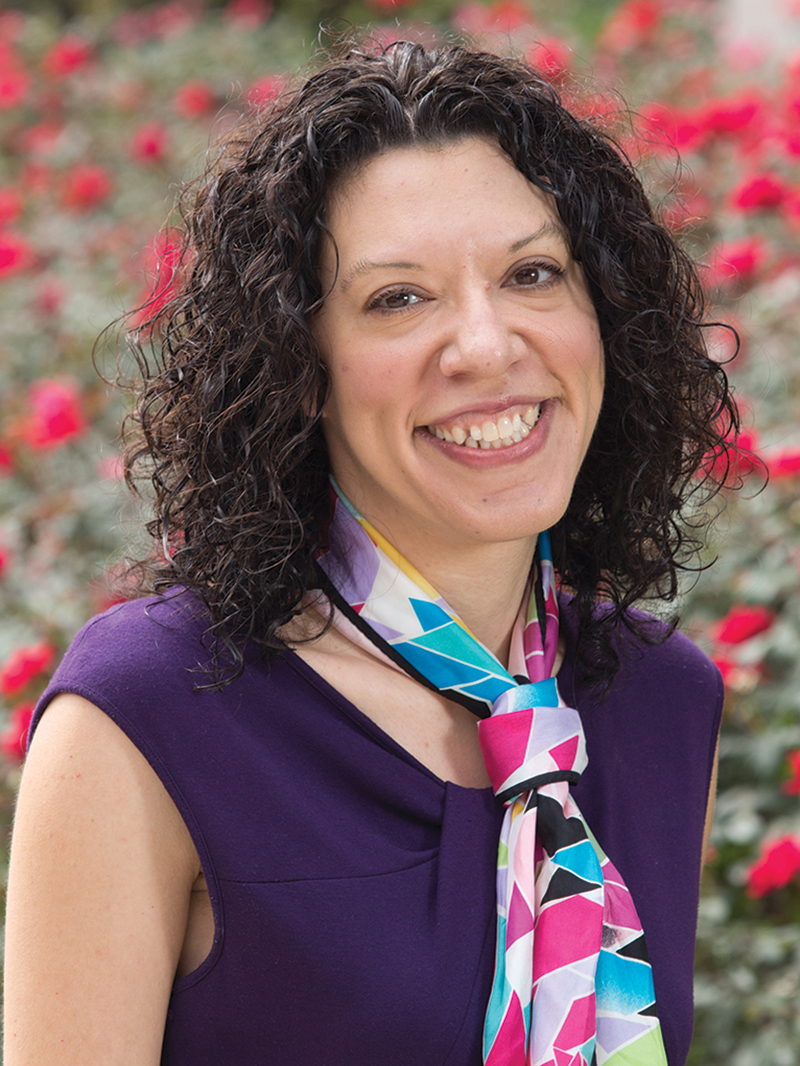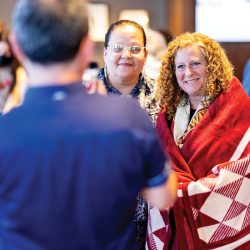Rethinking Kids and Trauma
Jennifer Elkins ’97 MS’98 teaches social workers and lawyers to work collaboratively.

Jennifer Elkins provides insight into the unique trauma experienced by children in state-sponsored foster care. Courtesy of University of Georgia
On a typical day in the United States, nearly half a million children are in state-sponsored foster care. Jennifer Elkins ’97, MS’98, an associate professor at the University of Georgia, is training future social workers and lawyers to understand the unique trauma that these children and their families may experience.
Elkins has cocreated an innovative course to teach members of these two professions, which have traditionally viewed each other warily, how to work collaboratively to benefit children at risk. Through a juvenile-court trial simulation, future social workers are gaining more confidence about representing clients in court. Future lawyers are learning to understand trauma and to more effectively use social workers as expert witnesses when they are subpoenaed to testify.
Now in its second year, the course has won Elkins and a law school colleague a 2018 Award for Innovative Teaching in Social Work Education from the Council on Social Work Education.
Trauma, which has been a research focus throughout Elkins’s career, “is much more messy and complex than we realize,” she says. “This is in part because it’s an individual’s experience of the event that matters, not the objective event itself. This explains how two people can experience the same traumatic event but have very different responses to it.”
A recent mock trial at the University of Georgia involved a scenario where both parents were at risk of losing their parental rights because of the father’s alleged sexual abuse of their son. In addition, the mother was a victim of the father’s physical violence. Child welfare lawyers often seat parents at risk of losing their parental rights together. But in this case, that would have retraumatized the mother due to her own abuse, so the lawyers in the mock trial opted to seat the parents apart.
“It’s really been beneficial to work with the law students and communicate with them on ways to infuse more trauma-informed perspectives,” says University of Georgia student Avital Abraham, who is earning a master’s in social work. She expects that the mock trials will reduce stress levels if she is called to testify in the future.
Elkins concurs. “We’re increasing the comfort levels and readiness for social workers in the courtroom. It’s an arena where social workers have a lot of potential power to be heard on behalf of their clients.”
Elkins says she feels fortunate that she had the opportunity to learn from some of the pioneers in the field of social work at Wisconsin, and she waxes nostalgic about her time on campus. “I now look upon cold weather, and the strategies I used to stay warm, quite fondly,” she says. “Wearing mittens over gloves. Figuring out a path that allowed me to stop in stores to warm up [on the way to class]. I drove a 1980s Buick Regal with rear-wheel drive, so I had to drive pretty strategically, too!”
Published in the Winter 2019 issue


Comments
No comments posted yet.